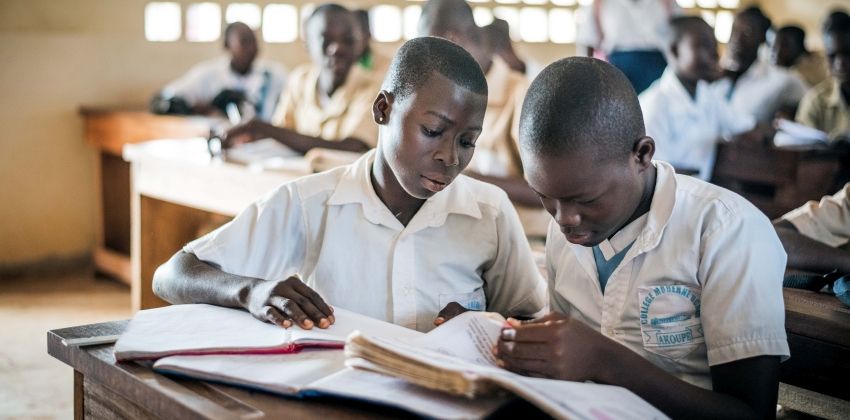Share Content
Article Link Copied
Scaling education initiatives requires a systems change

While effective approaches to improve learning exist, they are often only implemented on a small scale. That is why the “Global Compact on Learning” Donor Network met in New York to discuss the best ways to scale education initiatives and achieve the education Sustainable Development Goals.
Sustainable scaling requires shifting from a project mentality to a systems change approach, focusing on the structures, policies, and processes in the larger ecosystem and considering the diverse range of stakeholders and ways in which they interact, with the aim of expanding the impact and altering long-term processes and outcomes in a country.
During the meeting in New York of the “Global Compact on Learning” Donor Network, an informal network of over 65 public and private donors, challenges opportunities and lessons learned were discussed. Irina Hotz, Jacobs Foundation Project Manager International Programs, discussed how the Foundation has shifted its approach with its Transforming Education in Cocoa Communities (TRECC) initiative.
From Projects to Systems
«Part of taking a systems approach is aligning public and private agendas – bringing together a diversity of stakeholders who each have a distinct role and perspective”, said Irina Hotz. This has been central to the effort of Jacobs’ Transforming Education in Cocoa Communities (TRECC) Initiative in partnering with government, NGOs, , knowledge and research partners and, less traditional actors in the education space such as the cocoa and chocolate industry and social enterprises —all with the aim to improve the quality of education and development for children and youth in cocoa-growing communities and beyond.
To achieve large-scale, lasting impact, it is critical to understand the local context, but beyond just identifying challenges, it is essential to understand the underlying causes of those challenges – so that any response is truly addressing the issue and not just the symptoms. Irina Hotz pointed out that this requires a fine balance and iterative process between evidence generation and action. This also means scaling without ego: resisting the innovation bias funders may have, recognizing you are not the first or last to address a specific issue in a particular location and there is much to learn from what has been tried before.
The “Global Compact on Learning” took place as a side event to the United Nations General Assembly on September 23 in New York. Panelists were Rakesh Hajani (Co-Impact), Jaime Saavedra (World Bank) and Jo Bourne (Global Partnership for Education) and Jacobs Foundation’s Irina Hotz. The panel was moderated by Jenny Perlman Robinson (Brookings Institution).
Read more about the emerging insights of the Real-time Scaling Labs in the interview with Jenny Perlman Robinson.